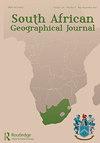Agriculture vs. conservation: how Grootvadersbosch Conservancy finds the common ground
IF 1.4
4区 社会学
Q3 GEOGRAPHY
引用次数: 3
Abstract
ABSTRACT Destructive agricultural practices are some of the leading causes of environmental degradation. The adoption of voluntary landscape scale conservation initiatives, such as the South African conservancy model, offers a possible solution. This article uses the Grootvadersbosch Conservancy as an example of how the gap between agricultural productivity and landscape conservation can be bridged. The objectives were to: investigate the conservancy’s historical context; discover the stakeholders’ motivations for joining the conservancy; identify the successes of the conservancy’s projects; and determine the effects of these on the landscape. Three methods were used: a literature study; semi-structured interviews with seven of the conservancy’s management staff who were identified using the snowball sampling technique; and a questionnaire survey distributed to the 21 members of the conservancy, of which 16 replied. The results showed the study area has a long history of environmental exploitation, which led to the establishment of the conservancy. The main reason why conservancy members joined was because of their conservation values. Their four successful landscape scale projects delivered several environmental, social and economic outcomes that positively affected the landscape. It is therefore recommended that farmers create conservancies using a similar model to reconcile the environmental demands of agriculture with the need to improve affected environmental assets and natural resources.农业vs保护:Grootvadersbosch保护协会如何找到共同点
破坏性农业生产是环境退化的主要原因之一。采用自愿的景观规模保护倡议,如南非保护模式,提供了一个可能的解决办法。本文以Grootvadersbosch保护区为例,说明如何弥合农业生产力与景观保护之间的差距。目的是:调查保护区的历史背景;发现利益相关者加入协会的动机;确定协会项目的成功之处;并确定它们对景观的影响。采用三种方法:文献法;对七名保护区管理人员进行了半结构化访谈,这些人员是通过滚雪球抽样技术确定的;并对21名协会成员进行问卷调查,其中16人回答。结果表明,研究区具有长期的环境开发历史,这导致了保护区的建立。保护协会成员加入的主要原因是他们的保护价值。他们的四个成功的景观规模项目提供了一些环境、社会和经济成果,对景观产生了积极的影响。因此,建议农民使用类似的模式创建保护区,以协调农业的环境需求与改善受影响的环境资产和自然资源的需要。
本文章由计算机程序翻译,如有差异,请以英文原文为准。
求助全文
约1分钟内获得全文
求助全文
来源期刊

South African Geographical Journal
GEOGRAPHY-
CiteScore
3.40
自引率
7.10%
发文量
25
期刊介绍:
The South African Geographical Journal was founded in 1917 and is the flagship journal of the Society of South African Geographers. The journal aims at using southern Africa as a region from, and through, which to communicate geographic knowledge and to engage with issues and themes relevant to the discipline. The journal is a forum for papers of a high academic quality and welcomes papers dealing with philosophical and methodological issues and topics of an international scope that are significant for the region and the African continent, including: Climate change Environmental studies Development Governance and policy Physical and urban Geography Human Geography Sustainability Tourism GIS and remote sensing
 求助内容:
求助内容: 应助结果提醒方式:
应助结果提醒方式:


